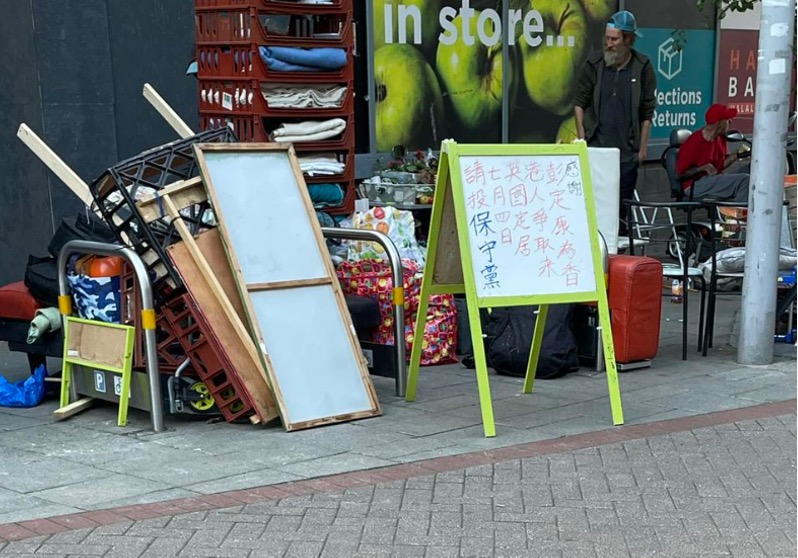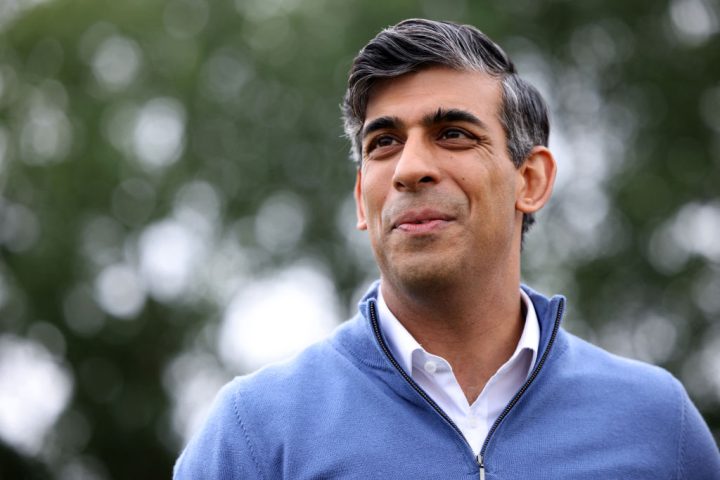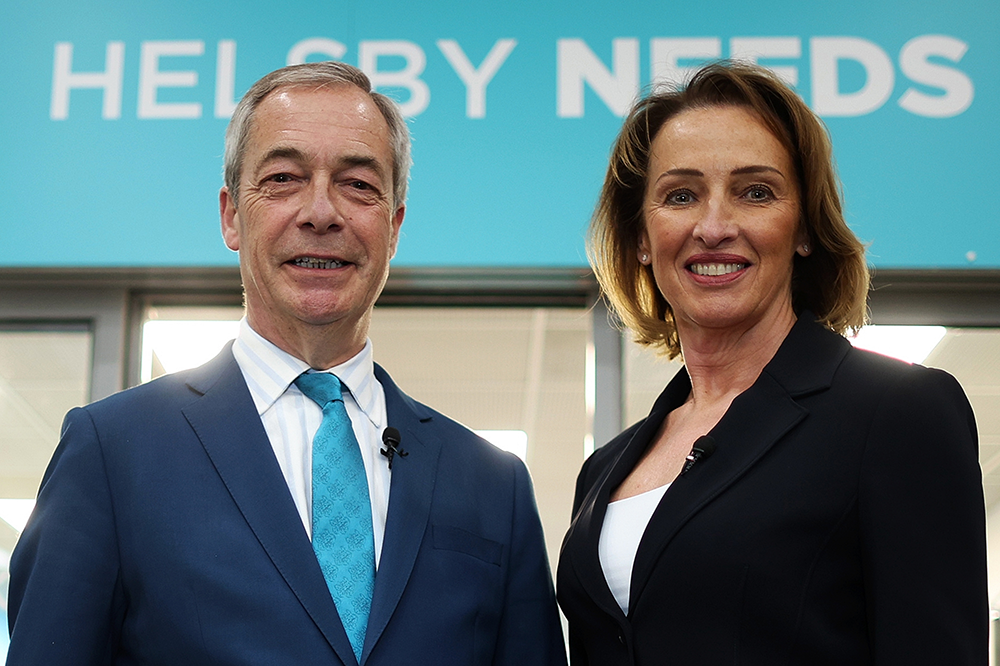On a high street in suburban London, a curious message appeared recently. Written on a stand-up whiteboard in traditional Chinese, it read: ‘Thank you to Chris Patten, who fought for British residency for Hong Kongers. 4 July – please vote Conservative’.
In the last few years, the leafy commuter town of Sutton, to the south of London, has seen thousands of new arrivals from Hong Kong since the government opened up a route to citizenship for those with British Nationals (Overseas) passports. In total, 140,000 have arrived in the UK since 2021, most of them given the right to vote. In a number of constituencies, they make up a significant new voter base (in three, according to analysis from the organisation Hong Kong Watch, their population actually outnumbers the local MP’s majority). Tomorrow, they will be voting in their first general election.
Did David Cameron’s return signal a change in tack towards China?
It’s an opportunity eagerly taken up. Recently, when I sat in a hustings in Sutton organised by Hong Kong Watch and Vote4HK, a grassroots campaign encouraging political participation, the attendees there described voting as an ‘honour’ and told me it was their ‘duty’ and ‘responsibility’ to participate.
This language of civic responsibility is almost quaint in modern Britain – a sentiment that native Brits rarely express in relation to politics these days. But is it any surprise that the Hong Kongers feel so sentimental about it? After all, most of them have uprooted their lives because of the Chinese Communist party’s (CCP) increasing encroachment at home. According to a Vote4HK survey conducted earlier this year, some 81 per cent of Hong Kongers had already registered to vote.
So who will they vote for? It’s often assumed that the Conservative party is their natural home. Beyond the widespread gratitude towards Chris Patten and, even more so, Boris Johnson (such that Rishi Sunak has been dubbed an ji ng zai, ‘traitor’, for ousting Boris), there is also an undeniable affinity of shared values. As the Tory candidate for Sutton and Cheam said in his pitch to the Hong Kongers: ‘My values are family, education and reward for hard work.’ These values may well have come out of a Confucian analect. In Sutton and Cheam, the Tories could certainly use their support – there are some 2,000 Hong Kong votes in the constituency, compared to a Tory majority of less than 9,000.

But from such new voters, this support may be soft, and melting. Vote4HK found that less than 15 per cent of respondents were satisfied with the government’s approach on the issue most important to them: China. How tough will any government be against the CCP? How protected are Hong Kongers in the UK against China’s agents overseas?
In particular, Sunak’s government has caused concern: Duckie, a 60 year old former social worker, wondered why the Prime Minister still hasn’t shut Confucius Institutes, despite promising to do so before. On the doorstep, the return of David Cameron also comes up as worrying – did it signal a change in tack towards China?
Beyond China, it’s the bread and butter issues of crime, education and cost of living that bother Hong Kong voters, as well as immigration. In the past year, the government’s fiercer rhetoric on legal migration has alarmed some of these new immigrants, who wonder if they might be the next to be targeted by the higher salary thresholds or included in any cap on net migration. After all, how safe can any immigrant be in a country that is turning against immigration? ‘The discourse has been deeply disappointing. Tell me, what is too high?’, 50 year old telecoms engineer Kolman, who arrived two years ago, asked.
In light of these concerns, and the proportion of undecided voters in the community (just under half, according to the Vote4HK survey), the Hong Kong vote is far from sewn up for the Conservatives. In that Sutton church hall, the audience applauded heartily for the Liberal Democrat candidate’s promises to be a local voice and to tackle crime and transport. The constituency is a target for the party and may well turn orange come 5 July. In the local elections just gone, two Hong Kongers who arrived in 2021 have already been elected as local councillors (in Surrey Heath and Wokingham) for the Liberal Democrats.
Labour is perhaps the least natural choice for the Hong Kong vote, but local factors can never be excluded in national elections. In Earley and Woodley, a newly drawn up constituency outside Reading which overlaps with what was formerly Theresa May and John Redwood’s seats, a millennial British-Chinese former journalist is running for Labour – and has a regular group of Hong Kongers who campaign for her. Until two years ago, Yuan Yang was reporting in Beijing for the Financial Times. Her journalism built a fanbase amongst those who saw her scrutiny of the Chinese government, while other Hong Kongers have bought in to the cause of getting more ethnic minority representation in parliament.
To sell the Labour message, she mainly talks about education. ‘I tell [the new Hong Kongers] the school system hasn’t always been like this. Often they don’t know because they haven’t been here long enough, but there has been a generational shift. When I was a new immigrant [in the 1990s], I had much more support in school. Now, class sizes are bigger and there is a shortage of teachers, especially in foreign languages’. Yet her heritage can be a challenge too – she was born on the mainland, and so has been seen with suspicion by some Hong Kongers, fears which some political opponents have happily fanned.
There is still much that we don’t know about this seismic wave of migration into the UK, predicted to be around 300,000 by 2026 by the Home Office. But this election has already shown the Hong Kongers’ potential to make an outsized impact on the political landscape – as voters, campaigners and, I suspect in the not too distant future, national politicians. Parties who ignore them do so at their own peril.








Comments